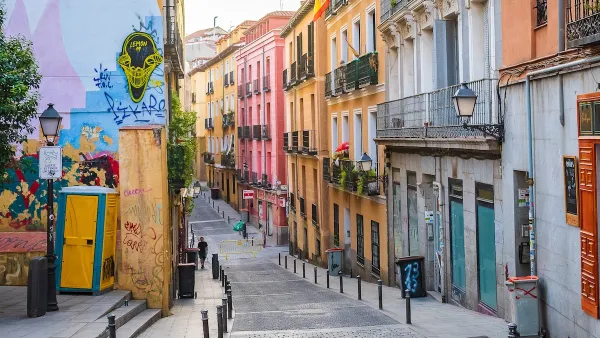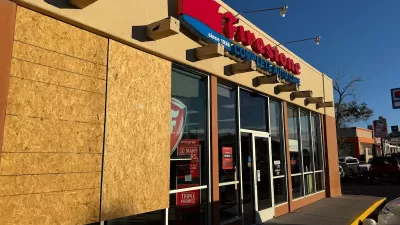Communities across America are competing for tourist dollars, but what can they do to stand out from the crowd? Ed McMahon shares ten principles to "preserve the goose that lays the golden egg."
Tourism is big business. Americans spend more than $800 billion a year on travel and recreational pursuits away from home. Tourism is one of the three largest industries in every American state and a critical factor in the world economy.
However, tourism is also a doubled edged sword. On the one hand, it provides communities with many benefits: new jobs, an expanded tax base, enhanced infrastructure, improved facilities and an expanded market for local products, art and handicrafts. In short, it can be an important tool for community revitalization. And on the other hand, it can create problems and burdens for local communities, such as crowding, traffic congestion, noise, increased crime, haphazard development, cost-of-living increases and degraded resources.
So the question is: how do you maximize the benefits of tourism, while minimizing the problems?
In this piece, an edition of which first ran in Virginia Town and City Magazine, Ed McMahon shares ten principles to cultivate a responsible tourism economy.
FULL STORY: Responsible Tourism: How to Preserve the Goose that Lays the Golden Egg

Planetizen Federal Action Tracker
A weekly monitor of how Trump’s orders and actions are impacting planners and planning in America.

Maui's Vacation Rental Debate Turns Ugly
Verbal attacks, misinformation campaigns and fistfights plague a high-stakes debate to convert thousands of vacation rentals into long-term housing.

San Francisco Suspends Traffic Calming Amidst Record Deaths
Citing “a challenging fiscal landscape,” the city will cease the program on the heels of 42 traffic deaths, including 24 pedestrians.

Amtrak Rolls Out New Orleans to Alabama “Mardi Gras” Train
The new service will operate morning and evening departures between Mobile and New Orleans.

The Subversive Car-Free Guide to Trump's Great American Road Trip
Car-free ways to access Chicagoland’s best tourist attractions.

San Antonio and Austin are Fusing Into one Massive Megaregion
The region spanning the two central Texas cities is growing fast, posing challenges for local infrastructure and water supplies.
Urban Design for Planners 1: Software Tools
This six-course series explores essential urban design concepts using open source software and equips planners with the tools they need to participate fully in the urban design process.
Planning for Universal Design
Learn the tools for implementing Universal Design in planning regulations.
Heyer Gruel & Associates PA
JM Goldson LLC
Custer County Colorado
City of Camden Redevelopment Agency
City of Astoria
Transportation Research & Education Center (TREC) at Portland State University
Jefferson Parish Government
Camden Redevelopment Agency
City of Claremont





























